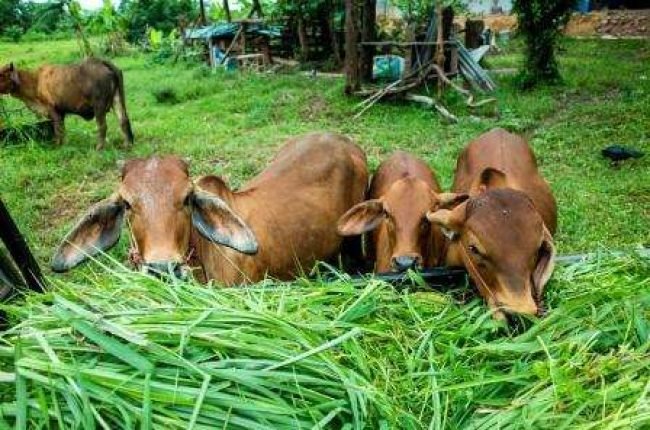Space not available
Reserve this advertising space
Selected ad format
The file format is not recognized
Click here for
upload an ad
Click here to download
an announcement
Here drag and drop or
upload an ad
Send the ad up to 8 days after payment
A link will be sent to you by contact@via-agency.media
Reserved space
Announcement transmitted
Reference
– Livestock farming: an activity with real potential

Livestock farming remains dominated by the presence of small-scale farmers scattered across the country. The country imports almost entirely the beef, lamb, pork, and poultry consumed by the population.
Space not available
Reserve this advertising space
Selected ad format
The file format is not recognized
Click here for
upload an ad
Click here to download
an announcement
Here drag and drop or
upload an ad
Send the ad up to 8 days after payment
A link will be sent to you by contact@via-agency.media
Reserved space
Announcement transmitted
Reference
These imports of meat and meat products constitute a very large portion of the country's imports—more than 150 billion CFA francs—and, consequently, weigh heavily on the state's budgetary expenditures. To reverse this trend, the development of short-cycle animal meat production sectors should help reduce import costs in the very near future.
To achieve this, the FAO office in Africa is working alongside the government and producers, implementing several initiatives aimed at developing the livestock sector, particularly in the establishment of feed mills and the structuring of livestock cooperatives. Traditional livestock farming focuses on chickens, ducks, pigs, and rabbits, among others. However, there is monitoring by IGAD within the framework of village livestock farming. Almost self-sufficient in table eggs, Gabon is far from self-sufficient in meat, with imports representing more than 90% of national consumption. In 2022, the Gabonese Agricultural Development Company (Sogada) expressed its desire to produce more than 50 million eggs per year in the medium or long term.
Space not available
Reserve this advertising space
Selected ad format
The file format is not recognized
Click here for
upload an ad
Click here to download
an announcement
Here drag and drop or
upload an ad
Send the ad up to 8 days after payment
A link will be sent to you by contact@via-agency.media
Reserved space
Announcement transmitted
Reference
For livestock farming, the number one problem is feed: in the absence of the necessary ingredients and because there are very few corn crops, the farmer is unable to produce his own feed; he must obtain supplies locally from a mill or resort to imported feed. Poultry and pig farming represent 80% of peri-urban livestock farming activities in Libreville. Most ofFarms are relatively small; for laying hens, 60% of farms have fewer than 2,500 layers. 80% of current farms were started less than 10 years ago. For 60% of farmers, livestock farming is a secondary activity, often a preparation for retirement, and the majority of the workforce has not received adequate training. The Gabon Milling and Poultry Company (SMAG) has launched a new range of feed for layers, broiler chickens, and pigs. The production of SMAG, the only large-scale agro-industrial entity, is practically equivalent to that of all other peri-urban livestock farmers. Structurally, the Tropical Agriculture Investment Company (SIAT) has taken over the management of ranches that focus on cattle farming.
However, while Gabon had no fewer than 42,000 cattle in 1981 over an area of 166,000 hectares, in 2020 there were only a little over 6,200. Down from 2018 when it stood at 6,387, this figure alone stigmatizes the decline of a sector that nevertheless has immense commercial potential both nationally and internationally. Indeed, generally sluggish, this activity is struggling to take advantage of its opportunities. As a result, between the decline in livestock following the gradual cessation of activities at the SIAT Nyanga ranch during the last quarter of the year and the overall sluggishness of the economy, the consolidated turnover of this activity collapsed from 49.5% to 444 million FCFA.
Far from the mark despite ever-increasing demand due to rising incomes for some households, increasing urbanization, and a change in lifestyle, particularly in connection with the emergence of a middle class, the cattle industry is struggling to create real added value. Gabon's national livestock development policy is structured around three strategic axes: strengthening the institutional framework, capacity building, and improving the productivity and competitiveness of the productive animal sectors (poultry, pork, beef, and small ruminants).
Space not available
Reserve this advertising space
Selected ad format
The file format is not recognized
Click here for
upload an ad
Click here to download
an announcement
Here drag and drop or
upload an ad
Send the ad up to 8 days after payment
A link will be sent to you by contact@via-agency.media
Reserved space
Announcement transmitted
Reference







